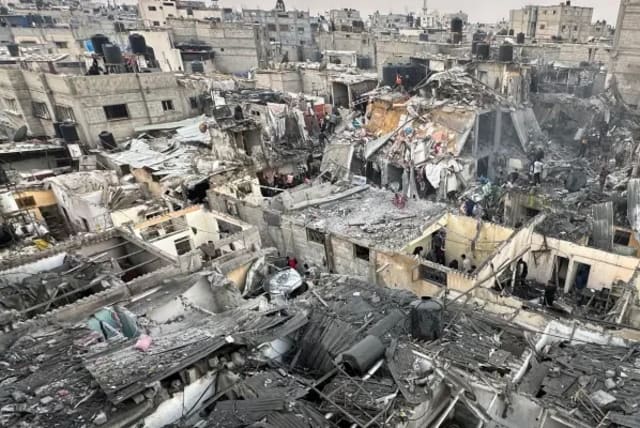Fusarim: The dangerous fungus in Gaza that killed an IDF soldier

An IDF soldier wounded in Gaza died due to a fungal infection from Fusarim. What is the Fusarium fungus, how is it transmitted, and what is the treatment?
Last Wednesday, a soldier who was wounded in the Gaza Strip and was battling a fungal infection died of his wounds at Sheba Medical Center in Tel Hashomer.
Fungi from the genus Fusarium cause a wide range of infections in the human body. In patients who suffer from injuries and are in a state of immunosuppression, the spread of the fungus in the body is much more extensive and life-threatening.
The fungus often resides in contaminated soil, on plants, and in water. It is considered to be very resilient, even in extreme weather. The fungus is also widespread in the Gaza Strip where hygiene conditions and medical monitoring are very poor.
The common symptoms resulting from Fusarium infection are skin and eye irritation, but the fungus can cause widespread damage to the abdominal cavity as well as sinusitis, pneumonia, infection of the heart valves, joints, bones, and blood. The fungus can be contracted by inhaling the spores, through contact with the eyes or wearing contaminated contact lenses, or contact with open wounds. It is thought that Fusarium can also be transmitted through drinking or showering in contaminated water.
The diagnosis is carried out in laboratory tests where a sample is taken from a contaminated area. It is usually customary in suspected cases to take a blood sample, as well as samples from infected skin and sometimes also from mucus.
The dangers of the fungus widespread in Gaza

Fusarium infection is life-threatening, and the mortality rate ranges from 20% to 70%. Fusarium is very resistant to many drugs, meaning that treatment is challenging and sometimes prolonged, requiring careful monitoring of the patient under hospitalization.
The treatment is carried out using antifungal drugs that are administered both locally to the infected areas on the skin or the eye, and also via infusion. However, antifungal drugs are known to include risks of their own and may damage liver and kidney functions. In the case of those who are wounded and or immunosuppressed, the risk is even higher and treatments may even bring about system collapse.
Jerusalem Post Store
`; document.getElementById("linkPremium").innerHTML = cont; var divWithLink = document.getElementById("premium-link"); if (divWithLink !== null && divWithLink !== 'undefined') { divWithLink.style.border = "solid 1px #cb0f3e"; divWithLink.style.textAlign = "center"; divWithLink.style.marginBottom = "15px"; divWithLink.style.marginTop = "15px"; divWithLink.style.width = "100%"; divWithLink.style.backgroundColor = "#122952"; divWithLink.style.color = "#ffffff"; divWithLink.style.lineHeight = "1.5"; } } (function (v, i) { });
